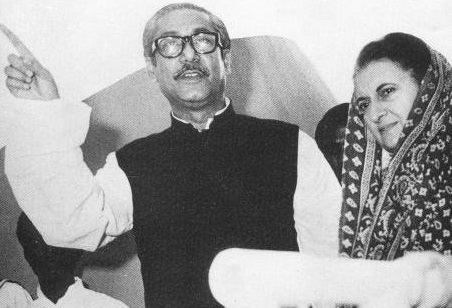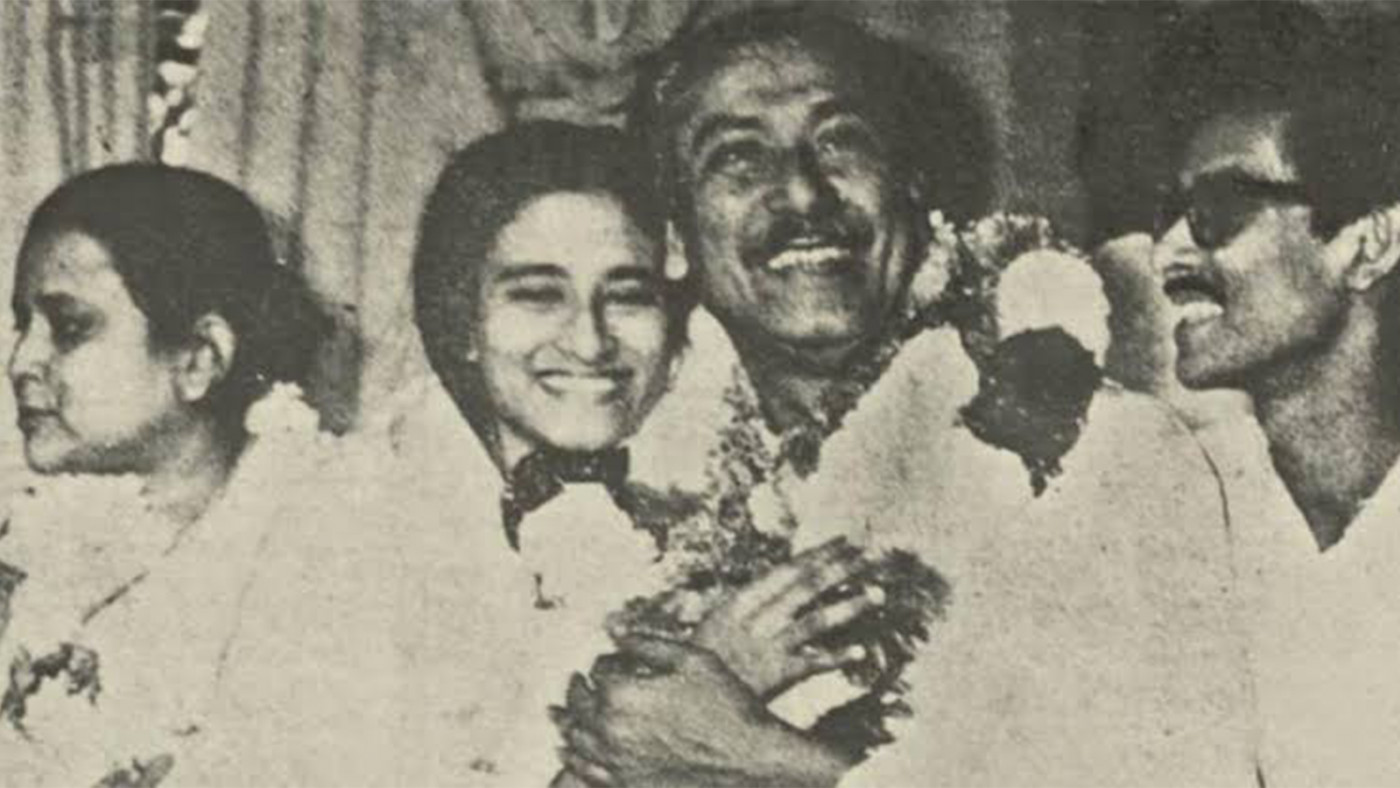By Agha Iqrar Haroon
Sheikh Hasina Wazed, the daughter of Sheikh Mujibur Rahman failed to face the brunt of the words she uttered in her July 2024 press conference in which she said “If the grandchildren of freedom fighters don’t get quota benefits, will those then go to the grandchildren of the Razakars? By using the diction of ‘Razakars’ she targeted those who crafted Pakistan out of undivided India and her reference to ‘freedom fighters’ was those who crafted Bangladesh out of East Pakistan. She had to run from the country on August 5, 2024, to India in an Indian Army helicopter that came from Agartala Air Force Station and she landed at Hindon Airport where she held her first meeting with Ajit Kumar Doval, the former spymaster of India who is currently National Security Advisor to Indian Prime Minister Modi.

Visibly the quota system of Bangladesh Civil Service is behind the mass movement of students in Bangladesh that ultimately resulted in the end of the rule of Sheikh Mujibur Rahman’s family, the man who was behind crafting Bangladesh out of Pakistan but deep research of currents and undercurrents of student movement indicates that it was not only the issue of quota present in the Bangladesh Civil Service for certain groups including descendants of freedom fighters (who were part of Indian sponsored Operation Jackpot), religious and ethnic minorities, underrepresented districts, and disabled groups. In essence, it is an affirmative action plan for marginalized groups, as well as for descendants (now including grandchildren) of former soldiers.
The preliminary research indicates that taunting everybody who was against her as ‘Razakars’ ignited the situation. She was doing the same that the Indian Prime Minister is doing in India whoever is against him politically, he is a ‘political terrorist’. The other factor dividing the society between ‘they’ and ‘us’ resulted in what Bangladeshi polarized society is facing today. Sheikh Hasina could have remembered that today’s Bangladesh is the ultimate gift from those ‘Razakars’ who made Pakistan and from Pakistan, Bangladesh was crafted therefore the original creators of today’s Bangladesh are ‘Razakars’ whom she made a taunting slot. Born and raised in East Bengal (Dhaka), the All-India Muslim League won the country for Muslims of the indo-subcontinent in 1947 and East Bengal became East Pakistan was surrounded by newly emerged India geographically, socially, and economically but strongly connected with West Pakistan religiously and philosophically. This was the second division of Bengal as the first was in 1905 and that too was based on religious backgrounds done by Lord Curzon, then Viceroy of India. Whatever politically happened between 1947 and 1971 is a long history but can easily be explained with the poetry of Munir Niazi who writes:
Kujh onj vi rahwan aukhiaN san—— the ways were hard, somewhat
Kujh galay vich ghaman da tauq vi si—– the sorrows collared my neck, as well
Kujh shehr dey lok vi zalim san— the townsfolk were harsh, somewhat
Kujh sanoo marn da shawq vi si.—– the death wish, I had, as well (translated by Jasdeep Singh)
The ethnographic research indicates that the language, social norms, historical perspectives, and economic differences were not the major reasons for differences that led to the 1971 events because the same ethnographic differences are experienced by India where Indian Punjab, Haryana, Chandighar, etc are altogether different from West Bengal as was in case of East Pakistan. Within India, the history, language, social fabric, and even economy of Western provinces (union states) are altogether different from Eastern provinces (union states). Unfortunately, no credible research has been done so far in Pakistan to find out the core reasons for the disintegration of East Pakistan from West Pakistan because the seeds lie in political differences and in the first military rule of Gen Ayub Khan whose rough treatment of Mother of Nation—Fatima Jinnah provided thousands of opportunities to India to manipulate the situation after January 1965 Presidential election as New Delhi had been working from the very first day to disintegrate East Pakistan from West Pakistan and India without any iota of doubt launched ‘Operation Jackpot’ just after 1965 Presidential election in East Pakistan though India officially accepted that Operation Jackpot was launched in March 1971.
All evidence that included speeches of Indian politicians (during 1964-1971), background interviews of Indian army officials, and even unofficially discussions of Field Marshal Sam Hormusji Framji Jamshedji Manekshaw confirmed that ‘Operation Jackpot’ was launched around 1965 with a different code name but having same work at the ground and ‘Agartala Move’ that Pakistan called Agartala Conspiracy Case is a reality not a mere fabricated case.
Anybody interested in finding the roots of Bangladesh should read about the life of Sachindra Lal Singha who is remembered in Bangladesh for his support for the Bangladesh Movement in the 1960s. Sachindra, who took office as Tripura’s Chief Minister in July 1963, was the first high-profile figure in India to come out with the diction of Bānlādēśa publically in support of Bangladesh. After Indira Gandhi assumed the post of Prime Minister in 1966, the idea of Bānlādēśa began to enter the mainstream Indian media, and material (audio, visual, text) was produced to establish the narrative that Bangalis should get independence from Pakistan with the active military and economic support of India.
In June 2010, the then Deputy Speaker of Bangladesh Shawkat Ali who was considered a ‘freedom fighter’ of Bangladesh criticized the Bangladeshi curriculum for textbooks for classes 9th and 10th in which it was claimed that the Agartala Case was fabricated. He urged the education ministry to take steps for its correction.
Chief minister of Tripura Sachindra Lal Singha had been meetings with Sheikh Mujibur Rahman in Agartala since 1963 to discuss the issue of East Pakistan’s secession
“Two textbooks for class 9 and 10 carried a nearly identical description of the case from which it appears that the Agartala case was merely a political event related to Bangabandhu’s historic six-point movement. But as a matter of fact, several military officers and civil servants were involved in the case as we wanted to liberate the country from Pakistan through an armed revolution under the leadership of Bangabandhu Sheikh Mujibur Rahman. The plan was called “the Agartala Plot” Navy steward Mujibur Rahman and educationist Mohammad Ali Reza went to Agartala to seek Indian support for Bangladesh’s independence”, Col (retd) Shawkat Ali confirmed.
At the time of “the Agartala Plot” Shawkat was a Captain of the Pakistan Army and was arrested to face the trial. He was of the view that textbooks must give true information to youth about the history of Bangladesh because ‘people like flight sergeant Fazlul Haque and flight sergeant Zahirul Haque and many more must be respected in history for their courage to fight for an independent state of Bangladesh’.
Related Story: Textbook ‘incorrectly’ describes Agartala Case: Shawkat
There are several books available to know both sides of the story of the Agartala Plot so instead of going into the details of the case, some important information about the case is mentioned hereunder:
Agartala Case was not merely a scripted play rather it was the beginning of ‘Operation Jackpot’ and Pakistan was a loser because it was too shy to share realities with the public
Navy steward Mujibur Rahman and the educator Mohammad Ali Reza, went to Agartala, Tripura, a city in North-Eastern India to seek Indian Army support for making an independent Bangladeshi state out of East Pakistan. Over 1,500 Bengalis were arrested who were allegedly involved in plotting the ‘revolution’ with the support of the Indian Army and they were arrested on 9 May 1968 and were subsequently released, only to be arrested later.
A British lawyer was hired to defend Sheikh Mujibur Rahman who according to Indian Newspapers was hired by the then chief minister of Tripura Sachindra Lal Singha who had been meetings with Sheikh Mujibur Rahman in Agartala since 1963 to discuss the issue of East Pakistan’s secession.
Related Story: A Passage to Agartala
The trial was started for court-martial of officers since a lot of the accused were military personnel. However, this was overturned in favor of a civil trial to implicate the politicians ahead of the 1970 elections as well as to provide transparency of the trials. Hence, only 35 were finally accused. The trial began on 19 June 1968 under a special tribunal and the charge sheet of 100 paragraphs was presented before the tribunal, with 227 witnesses and 7 approvers. The tribunal was headed by Justice S.A. Rahman, M.R. Khan, and Maksum-ul-Hakim. During the trial mass protests started in Dhaka for the release of Sheikh Mujib and demand was the immediate withdrawal of the case and release of all prisoners. On February 22, 1969, the government withdrew the Agartala Conspiracy Case and the accused were released and protestors gathered at the Race Course ground where Sheikh Mujib was given his famous title of Bangabandhu.

What happened between 1947 and December 16, 1971, nobody would get the truth because, in war, truth is the first casualty. However, there is no doubt left that the Agartala Case was not merely a scripted play rather it was the beginning of ‘Operation Jackpot’ and Pakistan was a loser because it was too shy to share realities with the public and no trial was conducted ever against characters whose conducts disintegrated Jinnah’s Pakistan.
